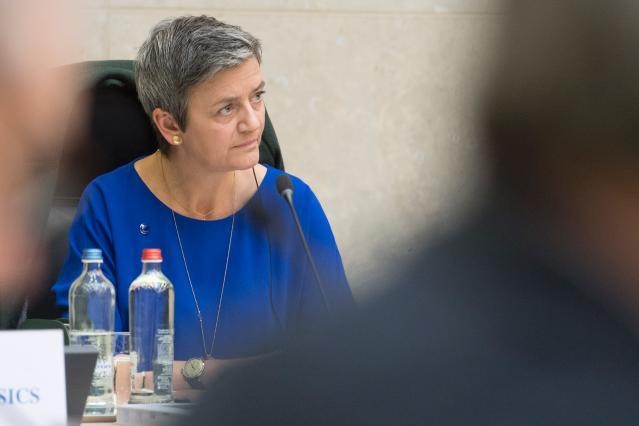The end of the Vestager dream at the head of the 2019 Commission?
(B2) By endorsing the refusal of the merger between the two French and German rail manufacturers, Alstom and Siemens, the Dane Margrethe Vestager, Commissioner for Competition, has she signed the end of her hopes of one day being at the head of the European Commission? In fact, the bets were made in advance and the Vestager hypothesis at the head of the Commission in 2019 was more of a chemical lure than a possible political reality.

The choice of a President of the European Commission is often a complex alchemy, but which emerges from elements that are both objective (political, national) and more subjective (personal career). To forget them exposes to error...
First element, of a political nature, the post of President of the European Commission is normally reserved for the majority party that comes out on top, or rather the one that can synthesize a coalition majority. Unless there is a last minute event, it is the Christian Democrats of the European People's Party (EPP) who should come out on top in the elections, a good distance from their first pursuers (the Social Democrats). And the EPP has clearly indicated that it is claiming the head of the Commission for one of its own, and does not intend to make this 'gift' to the Liberals and Democrats (to which the person concerned belongs).
Secondly, of a national nature, the Danish government has no real intention of renewing Mr Vestager as Commissioner. Not that she was unworthy, on the contrary. But his party (social liberal), classified in the center-left, is in the opposition. The government, which has another political composition, more to the right, intends to promote one of its own, and not make this 'gift' to a potential political adversary. This basic but absolute condition for being appointed to the European Commission is not fulfilled.
Third element, of a personal nature, Mr. Vestager has proven his skills at the European Commission, she is a former minister (Education, then Economy and Interior), but she has never been Prime Minister. And the European Council likes to choose from among the members of the 'club', a former member who is the most likely to understand their concerns. It is an unbroken tradition since Jacques Delors. The Dane can take care of her image, take care to obtain flattering portraits in the press. This is not enough to convince.
Fourth element, European, which should not be neglected, Denmark is not an element of the European heart. It participates neither in the Euro, nor in the defense policy, because of its internal choices, in a part of the justice policy, and has never marked, unlike several other 'small' countries, its will to strengthen European integration. Because of these numerous 'opt-outs' and positions, it is an outsider in the European game. Giving one of its nationals the task of conducting the policy of the European executive, which is the most integrated element of European policy, would be quite unjustifiable.
Last element, more geopolitical, the departure of the United Kingdom deprives the 'Nordic' camp of a significant weight. In this camp, a Finn or an Irishman, or even a Dutchman, would be more 'suited' to hold a leading European position, whether at the Commission or elsewhere (European Council, Parliament, etc.).
Conclusion: nothing is ever impossible at European level. But Margrethe Vestager had very little chance, not fulfilling several of the fundamental criteria, to access the supreme European function. This well before its decision in the Siemens-Alstom merger. Nothing therefore justified any leniency on its part in the competition analysis. Those who suggested this idea in the entourage of Emmanuel Macron, as in the press, must have known these elements. This comes out more from the trial balloons, or counter ideas, from the few decoys that we launch before approaching the 'real' choices.
(Nicolas Gros-Verheyde)
Read also: How is the President of the Commission appointed? A few overlooked points.


Indeed, what was true for the former Danish social-democrat Prime Minister Helle Thorning-Schmidt is indeed even more true for the liberal Mr. Vestager.
ping: European Council, Commission, High Representative... The candidates for the 'top chef' of 2019? - B2 Brussels2